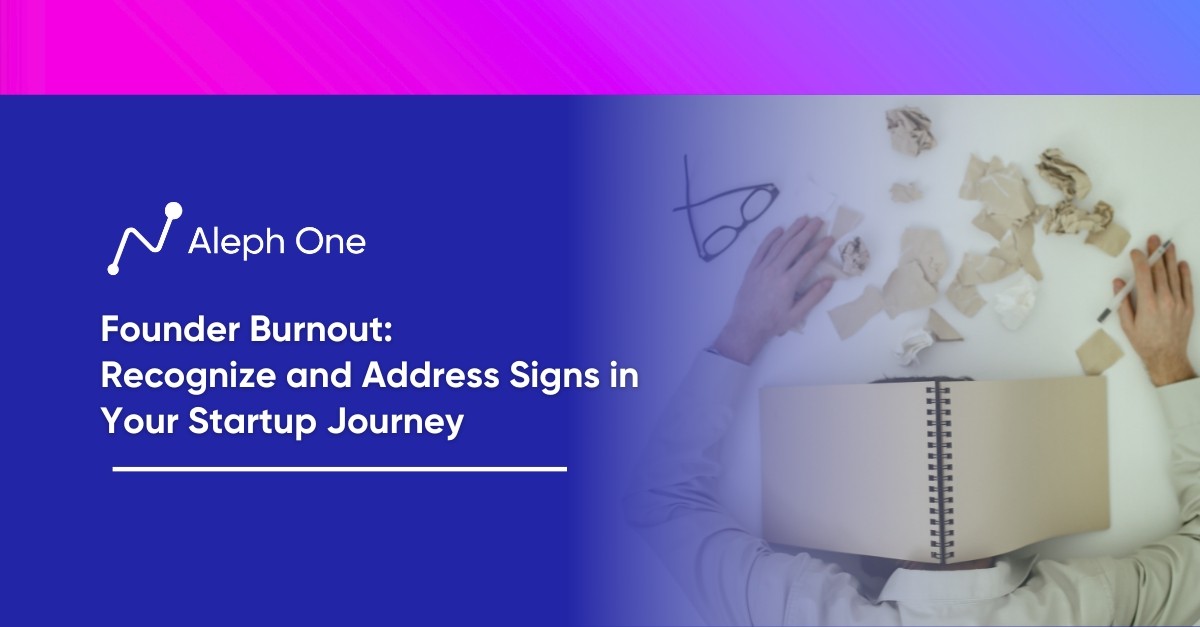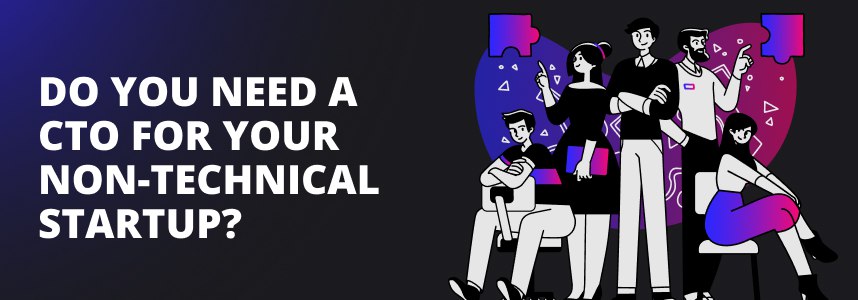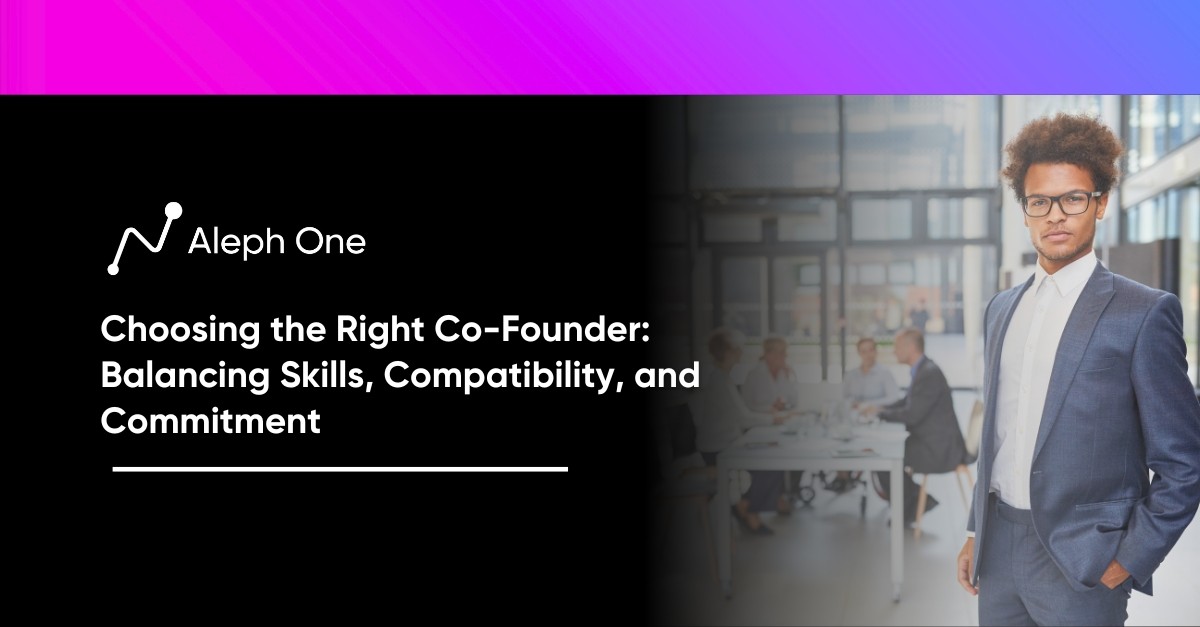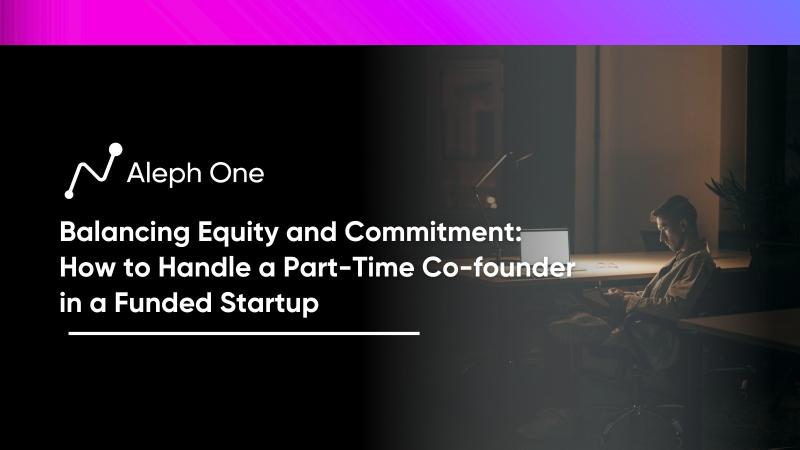Let’s work together to build something amazing. Share your project details and our team will reply to figure out the next steps to your success.

Burnout is a silent threat that often creeps up on founders, gradually draining their physical, mental, and emotional resources. In the fast-paced world of startups, working long hours and feeling stressed are often seen as a normal part of the journey. However, the toll of startup culture, combined with the “superhero” myth of founders, creates a vicious cycle of exhaustion, impaired performance, and damaged relationships. In this article, we will explore the critical symptoms of founder burnout, its dangers, and practical strategies for interrupting the spiral of burnout.

The Slow Burn: How Founder Burnout Creeps Up on You
Burnout is like the proverbial boiling frog. It starts gradually, with minor signs that seem harmless at first. Over time, the temperature keeps rising until it’s too late. For founders, these warning signs build physical, mental, and emotional exhaustion without intervention.
The Toll of Startup Culture
Studies show the average founder works over 60 hours a week, with nearly 20% working 80-100+ hours. At the same time, ambition and passion fuel startup founders. Working at this pace is unsustainable. Stress hormones like cortisol flood your body, damaging your health, relationships, and decision-making abilities. But in the excitement of building a company, most founders recognize the effects once they’re in dire straits.
The “Superhero” Myth
The problem is compounded by the “superhero” myth of startup founders. We’re supposed to work endlessly, sacrifice everything, and will our companies succeed through sheer determination. Admitting you’re struggling or need help is a sign of weakness. So founders keep pushing themselves to do more, be more, and achieve more to live up to unrealistic expectations. The result is a vicious cycle of exhaustion, impaired performance, health issues, and damaged relationships.
Recognizing and Addressing Burnout
When you’re in the thick of startup life, it’s nearly impossible to identify how severe your burnout is becoming. The good news is there are warning signs you can detect early before burnout causes lasting harm. But you must know the symptoms, permit yourself to acknowledge them, and have the courage to make fundamental changes. Spotting the warning signs of burnout—and taking action—could save your startup and change the course of your life as an entrepreneur. The alternative is a slow descent into physical and mental collapse, which serves neither you nor your company.
The 4 A’s: Key Symptoms of Founder Burnout to Watch For
As a founder, it’s easy to miss the signs that burnout is creeping into your life. But there are four significant symptoms to watch out for:
1) Apathy
Do you need more passion or motivation for your work? Have you lost excitement about building your startup? Apathy is a warning sign that burnout drains your emotional and mental resources. Founders often only realize how apathetic they’ve become once it’s almost too late.
2) Anxiety
While some stress is normal, excessive worry, dread, and panic attacks are signs of burnout-induced anxiety. As responsibilities and pressures mount, anxiety can become a founder’s constant companion. This prolonged anxiety suppresses creativity and problem-solving skills, which founders desperately need.
3) Alienation
Do you feel increasingly isolated from family and friends? Are you irritable, short-tempered, or emotionally distant? Burnout can alienate founders from their support networks when they need them the most. Staying connected to others helps maintain mental health and gain perspective – both of which burnout erodes over time.
4) Accidents and Errors
When burned out, founders become prone to poor decision-making, impaired focus, and forgetfulness. They may struggle with tasks that were once easy. They see a rise in mistakes, mix-ups, and miscommunications that damage productivity, relationships, and business metrics. These “accidents and errors” further fuel anxiety and burnout, creating a vicious cycle.
The more symptoms you identify in yourself or your co-founders, the closer you are to full-fledged burnout. But the good news is you can interrupt this cycle by recognizing the signs and taking action. While founder burnout may sometimes feel inevitable, it is beatable if you prioritize your health and well-being.
Why Founder Burnout is So Dangerous (And Common)
Founder burnout is an overall experience, with surveys showing up to 70% of founders reporting high levels of stress and exhaustion. This is unsurprising given the intense pressures and long hours required to launch a startup. However, founder burnout is particularly damaging because the fate of the entire company rests on the founders’ shoulders.
Decreased Founder Performance and Leadership
When founders are burnt out, their creativity, productivity, and decision-making suffer. This directly impacts their ability to lead teams, inspire investors, and solve complex problems. Burnt-out founders are more prone to anxiety, depression, and physical health issues, further compounding the problems.
A Threat to Startup Survival
A 2019 Harvard Business School study found that 65% of startup failures were due to co-founder conflicts and burnout. The researchers concluded that “burnout…may be one of the biggest threats to a startup’s survival.” Burnout also has ripple effects, negatively impacting company culture, employee morale, and retention.
Founders Feel the Need to Power Through
Burnout is especially dangerous for founders because most feel they have no choice but to power through and work even harder, creating a vicious cycle of exhaustion and impaired performance. Taking time off or practicing self-care is considered an indulgence rather than a strategic necessity.
Managing Energy, Not Time
However, research clearly shows the benefits of rest and recharging. A Stanford study found that productivity declines sharply after 55 hours of work per week, and creativity is highest when people work no more than 40 hours a week. The most successful founders build sustainable habits and companies by managing their energy rather than time. They understand that avoiding burnout is essential for their well-being and the startup’s success.
In the high-stress crucible of entrepreneurship, some struggle and sacrifice are inevitable. But chronic, unaddressed burnout is not a badge of honor—it’s a threat that can undermine founders and their startups. With self-awareness, practical wellness strategies, and a willingness to change habits, founders can build a sustainable startup and avoid the dangers of burnout. The future of their companies depends on it.
Pattern Interrupts: 5 Ways to Stop the Spiral of Burnout
To overcome founder burnout, you need to break the unhealthy patterns that led to your exhaustion in the first place. “Pattern interrupts” are small changes you can make to disrupt your usual way of operating and jolt yourself into a new mindset. Here are a few effective patterns interrupts founders can implement:
1) Take Time Off
Completely unplugging from work, even for a few days, can work wonders for gaining a new perspective. Make the time to recharge by doing an activity you find meaningful or energizing. One founder took a 3-day camping trip by himself to rest and refocus. He returned with a solution to a problem he had been stuck on for months.
2) Exercise Daily
Exercise is a natural energizer and stress reliever. Taking a 30-minute walk or doing light exercise can help you feel more motivated and focused. One founder started doing yoga in the mornings and found it centered her for the day ahead. She was able to be more strategic and less reactive in dealing with daily challenges.
3) Eat a Healthy and Balanced Diet
What you eat significantly impacts your energy, mood, and ability to handle stress. Stay away from excess sugar and caffeine and instead eat more whole foods like fruits and vegetables, lean proteins, and whole grains. Several founders improved their daily productivity and sleep quality by improving their diet and nutrition.
4) Practice Mindfulness
Mindfulness exercises like meditation, deep breathing, and journaling are proven ways to decrease stress and increase focus. One frazzled founder started doing 10 minutes of meditation each morning and evening. After a few weeks, he noticed a significant improvement in concentration and patience. His team also reported that he seemed more engaged and present in meetings.
5) Meet With a Mentor or Coach
Talking to someone outside your daily startup grind can help you gain a more balanced perspective. Work with a mentor or coach who can provide guidance specific to founder burnout and help keep you accountable for the changes you want to make. Their support can be instrumental in navigating your way out of burnout.
The key is to start with small, sustainable changes and build from there. Take your time with implementing all of these. Pick one or two pattern interrupts to focus on, and you’ll soon start feeling your energy and motivation returning. The spiral of burnout will begin to reverse as you establish healthier habits and a more balanced lifestyle.
The #1 Solution No One Talks About: Self-Care Isn’t Selfish
Self-care is the most critical but overlooked solution for avoiding and overcoming founder burnout. While pattern interrupts and lifestyle changes can help, self-care is the foundation. Yet self-care remains taboo for many founders. The “hustle hard” mentality glorifies working long hours and making huge personal sacrifices for the startup. But research shows this needs to be revised and ultimately damaging.
Enhancing Health, Performance, and Creativity
Founders who practice regular self-care have better health and performance. They take fewer sick days and experience less anxiety and depression, according to multiple studies. Self-care also boosts creativity, problem-solving skills, and productivity, directly benefiting startups.
Breaking the Cycle of Chronic Stress and Exhaustion
However, founders need more time for self-care. The average US employee takes less than half of their paid time off, and founders take even less. Many founders brag about not taking vacations or weekends for years, which is unhealthy and unsustainable. No one can operate at peak performance under chronic stress and exhaustion.
Self-Care Strategies
Self-care is not selfish or indulgent but rather a strategic necessity for founders. It includes simple things like taking all paid time off, limiting work hours, staying socially connected to others, and maintaining physical and mental health. While self-care requires time, the benefits to the founder and startup are substantial.
Making Well-Being a Priority
Founders should prioritize self-care and build it into their schedules and budgets. Even small actions can help, such as leaving work at a reasonable hour, taking short breaks during the day, and exercising a few times a week. For the good of themselves and their startups, founders should make sustainable self-care a crucial part of their journey. Overall, self-care is the most significant thing founders can do to avoid burnout and succeed in the long run. It’s time for founders to reject the “hustle hard” mentality and prioritize their health and well-being.
Comeback Stories: Inspiring Tales of Founders Who Defeated Burnout
Some of the most successful founders have faced burnout and lived to tell the tale. Their stories can inspire others struggling with the same issues.
Evan Williams: Co-Founder of Blogger, Twitter, and Medium
Evan Williams, co-founder of Blogger, Twitter, and Medium, has discussed facing burnout in the early days of Twitter. The long hours and stress took a significant toll, and his health, relationships, and productivity suffered. Williams took a month-long break, got outdoors, spent time with loved ones, and recharged. He returned reinvigorated, refocused his efforts, and helped turn Twitter into a global phenomenon.
Reshma Saujani: Founder of Girls Who Code
Reshma Saujani, founder of Girls Who Code, opened up about experiencing depression and burnout while building her nonprofit. She had trouble unplugging from work and was overwhelmed by the scale of the problems she was trying to solve. With the support of her board and husband, Saujani took time to rest, reconnected with her purpose, and made self-care a priority. She emerged stronger and better equipped to lead her organization to new heights.
Tobi Lütke: Founder and CEO of Shopify
Tobi Lütke, founder and CEO of Shopify, has frequently discussed the dangers of burnout and work-life imbalance. In 2019, Lütke took a 6-month sabbatical, his first significant break since founding Shopify in 2006. He spent time with family, improved his health, and recharged mentally. Lütke returned reinvigorated with a new perspective on scaling Shopify’s long-term sustainability. His example highlights how even the most driven founders need extended rest periods to avoid burnout and come back at full strength.
Avoid Founder Burnout and Clear Your Mind for Startup Success
These founders’ stories highlight that no one is immune to burnout, no matter how successful. But it is possible to overcome with self-awareness, the willingness to make a change, and the courage to step away from work and prioritize yourself. Their examples show that founder burnout is beatable—and that the most resilient founders build sustainable companies, not those who drive themselves into the ground. The lesson for all founders is that taking a break won’t break you—it will make you stronger. With the right mindset and self-care strategies, you can come back from the brink of burnout and build an enduring startup.
Get the latest news and updates from Aleph One in your inbox.



